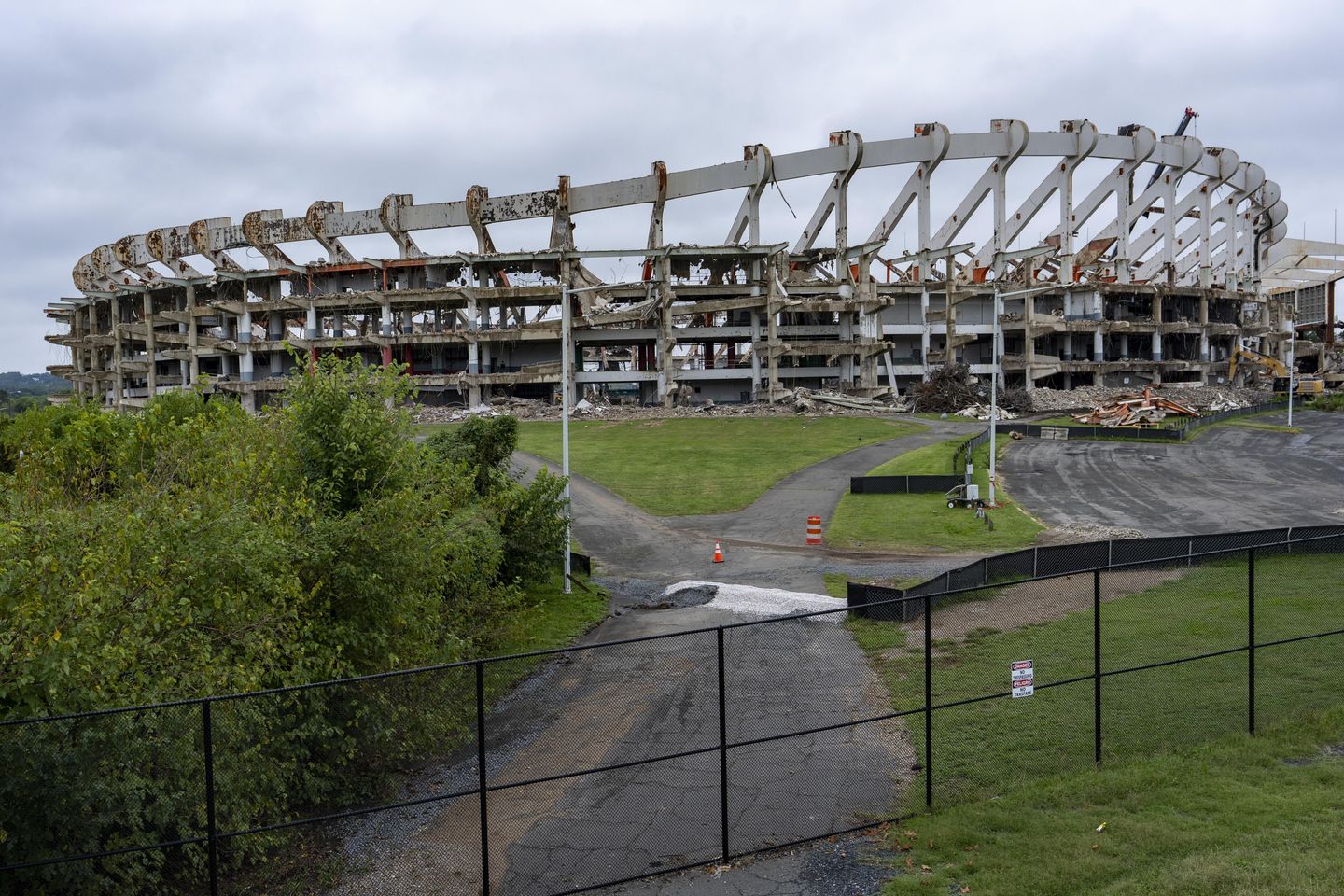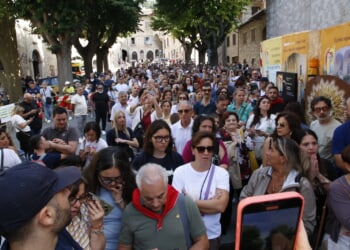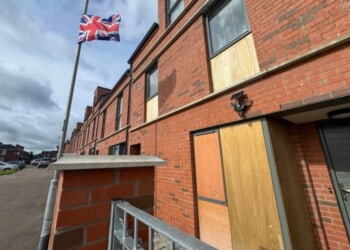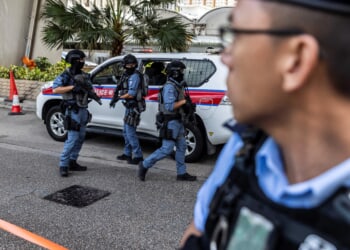
The Commanders’ long, winding path back to home games in the District cleared another hurdle on Wednesday.
The D.C. Council approved — for a second time — legislation for a new stadium on the site of the old RFK Stadium campus by an 11-2 vote.
At-Large Council member Robert White and Ward 1 Council member Brianne Nadeau voted against the proposal.
Ward 3 Council member Matthew Frumin, who voted against the legislation last month, supported the stadium.
Local lawmakers had already approved the proposal by a 9-3 vote in July. Wednesday’s vote was a final step for the D.C. Council to move the process forward. The legislation now heads to Mayor Muriel Bowser’s desk — she is widely expected to sign the act after negotiating the stadium deal with the Commanders in August.
After earning the mayor’s signature, the proposal will be subject to a 30-day congressional approval period under the District’s Home Rule Act.
Federal lawmakers agreed to give the city a 99-year lease of the site last year, with several representatives urging local lawmakers to build a new stadium.
The proposal will allow Commanders owner Josh Harris to build a $3.7 billion multi-use project anchored by a state-of-the-art domed stadium in the center of a planned retail and housing district.
Councilmembers, including Ward 7 representative Wendell Felder and At-Large representative Robert White, issued a slew of amendments before Wednesday’s vote. Most proposals offered stauncher penalties if the Commanders failed to meet deadlines to build affordable housing on the site.
The majority of the amendments failed to pass through a vote.
The few approved amendments focused on zoning clarifications, additional funds for a community reinvestment fund and other administrative adjustments.
The Commanders weren’t fans of several proposed changes that would have levied fines on the franchise if it failed to deliver housing and development by planned deadlines. That amendment — alongside other changes that would have doubled the Commanders’ investment in a community benefits agreement or allowed the District to reclaim the site in 2050 — failed on a vote.
“Less than 24 hours before the final vote, the Commanders organization was presented with a list of unworkable and impractical new last-minute demands made by Councilmembers, which we simply cannot agree to as it jeopardizes the deal,” Commanders President Mark Clouse wrote in a letter to the D.C. Council. “Most demands were made verbally without supporting documentation.”
The amendments that most irked Mr. Clouse failed when presented to the D.C. Council.
Any sour feelings dissipated after the legislation passed.
“With the Council’s approval, we can now move forward on the transformative RFK project that will bring lasting economic growth for our city. …” Commanders owner Josh Harris said in a statement. “We are deeply grateful for the warm return to the District and the center of the DMV, and look forward to officially bringing the team back to its spiritual home in 2030.”
Only one major roadblock remains: President Trump.
The Republican — and former owner of the USFL’s New Jersey Generals — threatened to block the stadium earlier this year if the Commanders did not revert to their old name.
The Commanders, who were known as the Redskins until 2020, abandoned the old name and mascot after increased public pressure and claims of racial insensitivity.
“I may put a restriction on them that if they don’t change the name back to the original ‘Washington Redskins,’ and get rid of the ridiculous moniker, ‘Washington Commanders,’ I won’t make a deal for them to build a Stadium in Washington,” Mr. Trump wrote on Truth Social in July. “The Team would be much more valuable, and the Deal would be more exciting for everyone.”
The president did not specify how he could interfere with the deal at the time. He has not commented on the stadium proposal in the intervening two months.
District officials plan to invest approximately $1.1 billion in city funds to finance a community sports complex at the site, along with new parking garages and other transportation infrastructure improvements.
The Commanders would be responsible for the remaining $2.6 billion in development costs, along with any unexpected financial burdens.
The project also features an $89 million community sports complex, public parks and green spaces and 6,000 housing units to bring 10,000 new residents to the area. At least 30% of the homes are expected to qualify as “affordable housing.”
The deal was first announced by Ms. Bowser in April. It has undergone some minor revisions offered by skeptical D.C. Council members, including Chairman Phil Mendelson. After negotiations with the team, the final deal allows the Commanders to pay just $1 a year in rent while maintaining responsibility for any cost overages during construction.
The team will pay taxes on retail, food and merchandise from the site. However, to the dismay of stadium critics, the team will only pay taxes on parking fees on non-event days. A proposed amendment to remove the parking exemption failed on Wednesday.
The Commanders have regularly said they plan to host approximately 200 events per year at the 65,000-seat stadium, including NFL games, women’s soccer matches, concerts and marquee events like Wrestlemania and the Women’s World Cup.
The franchise has agreed to a 30-year lease with the District with options for 20-year renewals.
The Commanders plan to break ground on their new home next year; they hope the stadium will be ready for play in 2030.





![Gavin Newsom Threatens to 'Punch These Sons of B*thces in the Mouth' [WATCH]](https://www.right2024.com/wp-content/uploads/2025/08/Gavin-Newsom-Threatens-to-Punch-These-Sons-of-Bthces-in-350x250.jpg)
![ICE Arrests Illegal Alien Influencer During Her Livestream in Los Angeles: ‘You Bet We Did’ [WATCH]](https://www.right2024.com/wp-content/uploads/2025/08/ICE-Arrests-Illegal-Alien-Influencer-During-Her-Livestream-in-Los-350x250.jpg)








